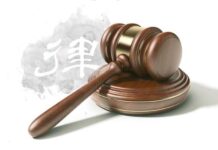THIS COLUMN DISCUSSES a special process that is established by governments in common law jurisdictions to inquire into matters of public importance. This process – known as a Royal Commission in the UK and Australia and as a Commission of Inquiry in Hong Kong – has extensive powers to gather information and evidence for the purposes of the inquiry. The discussion commences by explaining the role and powers of such commissions and then outlines a recent commission in Australia that inquired into misconduct in the financial services sector.
THE ROLE AND POWERS
In general, a commission of inquiry is established either to investigate certain matters (e.g., maladministration on the part of government, wrongdoing on the part of companies or a natural catastrophe such as a flood or bushfire) or to provide advice to government about a policy issue. In these situations, the commission of inquiry is usually requested to make reform recommendations for consideration by the government. Most commissions of inquiry are investigative in nature.
In common law jurisdictions such as Australia, a Royal Commission is established pursuant to specific legislation. Royal Commissions are chaired by one or more Royal Commissioners, who must be independent of government. Retired or serving judges are often appointed as Royal Commissioners as they are familiar with the legal powers that Royal Commissioners exercise.
When the government establishes a Royal Commission, it stipulates the scope of the inquiry, which is referred to as the “terms of reference”, and also the date by which the Royal Commission must be concluded. The terms of reference are usually very specific and set out the matters that the Royal Commission should investigate and the areas in which the Royal Commission should make recommendations. Royal Commissions can be very expensive as the commissioners must have sufficient funds to retain professionals, including lawyers and other professionals, and to hold public hearings and publish a final report.
A Royal Commission has extensive powers to require witnesses to give evidence and also to seize documents and other evidence. For example, a Royal Commission may collect evidence through entering private property and may also undertake surveillance through phone-tapping.
Unlike a court, Royal Commissions are not judicial in nature; in other words, they do not issue verdicts. They do, however, make recommendations and can refer matters and people to regulatory agencies and prosecutors for investigation.
In some respects, a Royal Commission has more powers than a court. For example, in common law jurisdictions, the power to compel individuals to answer questions or to produce evidence for the purpose of an investigation – whether criminal or civil in nature – generally requires an order from a court of law. Such an order is known as a subpoena, which is an old English word that is derived from the Latin words sub poena, meaning “under penalty”. This refers to the penalty that will be imposed on a person for failing to comply with the order.
Under the rules that govern civil proceedings in England and Wales, the term subpoena has been replaced with the term “witness summons”. Rule 34.2 of the Civil Procedure Rules 1998 provides as follows:
Witness summonses
(1) A witness summons is a document issued by the court requiring a witness to —
(a) attend court to give evidence; or
(b) produce documents to the court.
(2) A witness summons must be in the relevant practice form.
(3) There must be a separate witness summons for each witness.
(4) A witness summons may require a witness to produce documents to the court either —
(a) on the date fixed for a hearing; or
(b) on such date as the court may direct.
(5) The only documents that a summons under this rule can require a person to produce before a hearing are documents which that person could be required to produce at the hearing.
In legal investigations and proceedings, the power of police and courts to ask questions is limited by the right of an individual to remain silent, which protects individuals from testifying (i.e., providing evidence) against themselves. An important aspect of the right to remain silent is the right against self-incrimination, which protects individuals from providing evidence that would incriminate themselves (i.e., prove that they have been involved in a crime or in a civil wrong).
The right against self-incrimination is embodied in Article 14(3)(g) of the International Covenant on Civil and Political Rights, which provides as follows:
3. In the determination of any criminal charge against him,
everyone shall be entitled to the following minimum guarantees, in full equality:
…
(g) Not to be compelled to testify against himself or to
confess guilt.
In China, the right against self-incrimination is reflected in article 52 of the Criminal Procedure Law.
By contrast with courts, a Royal Commission may require a witness to give evidence even if the evidence is self-incriminating in nature.
You must be a
subscribersubscribersubscribersubscriber
to read this content, please
subscribesubscribesubscribesubscribe
today.
For group subscribers, please click here to access.
Interested in group subscription? Please contact us.
你需要登录去解锁本文内容。欢迎注册账号。如果想阅读月刊所有文章,欢迎成为我们的订阅会员成为我们的订阅会员。
Citation 1
PRC Criminal Procedure Law, Article 52
Judges, procurators and investigators must collect all kinds of evidence to prove the guilt or otherwise of the suspect or the accused and the gravity of the circumstances of the crime in accordance with the legal procedures. It is strictly prohibited to extort confessions by torture, to collect evidence by threats, inducements, deceptions or other illegal methods, and to force anyone to prove their guilt. It must be guaranteed that all citizens who are relevant to a case or who understand the background to the case are given the conditions to provide evidence objectively and fully and that, except in special circumstances, they are involved to assist in the investigation.

Andrew Godwin
A former partner of Linklaters Shanghai, Andrew Godwin teaches law at Melbourne Law School in Australia, where he is an associate director of its Asian Law Centre. Andrew’s new book is a compilation of China Business Law Journal’s popular Lexicon series, entitled China Lexicon: Defining and translating legal terms. The book is published by Vantage Asia and available at beta2.law.asia.




























